• Study Abroad
MBA Personal Statement: Examples, Tips, and Mistakes to Avoid While Writing
2192 Reads
3 min Read
During the process of applying for an MBA, one of the most important steps is writing an MBA personal statement which many students might feel intimidated about because not only does it hold a lot of importance in your candidacy, but it also gives them a reality check of where they stand. This process should be followed very carefully to enhance the chances of admission.
Table of Contents
- • What is the Personal Statement?
- • A focused and effective Personal Statement serves three major functions:
- • A few details needed to be added to the Personal Statement include:
- • MBA Personal Statement Examples:
- • Effective Tips on writing an outstanding MBA Personal Statement:
- • Mistakes to avoid while writing the MBA Personal Statement:
What is the Personal Statement?
The Personal Statement is a key part of the application and a key factor among admission committees. It is one opportunity for students to present themselves on their own terms and using their own words.A focused and effective Personal Statement serves three major functions:
- Personal Statements give broad, comprehensive insights into your personal and academic background.
Ultimately, one academic, personal and even professional background can be the determining factor in admission to any college or university. But there’s a huge difference between a Personal Statement and a Statement of Purpose. - It provides college admission counsellors with an accurate overview of one’s academic goals.
A good Personal statement should explain how one’s background relates to one’s university program and goals. It must put in context the tools, resources, and background one brings to the table and how they are aligned with their school’s profile.
In other words, how they write about their background should make them stand out from other applicants and connect with what they want to accomplish. - Personal Statements answer very specific questions.
Often, one’s application will require them to apply to a specific program and will ask very specific questions. So, it’s better to research not only their target university’s profile but also specific college majors and professors in that department.
| Basis of distinction | Statement of purpose | Personal Statement |
| Purpose | A student has to show the university that they fit well in the specific department they have chosen. They must focus on their qualifications and credentials. | This will help the university’s admission committee have a better understanding. It will help them understand whether students can blend into the cultural, social, and philosophical fabric. They must state their past experiences that will portray how it has shaped them as a person. |
| Focuses on | This focuses on how eager a student is for the course and the contribution they will make to society after achieving the degree. They talk about their future aspirations. | In the Personal Statement, they talk about their past experiences. And how it has shaped them to become a deserving candidate for this scholarship or admission. |
| Subjects to be covered | They must state their college education, relevant work, internship experience, additional training, an explanation of backlogs, research papers, future goals, and how they wish to accomplish higher education. | They will have to mention their financial or cultural background, traditional attitude, international exposure, and own experiences. How they have learned other life values like perseverance, love, hope for humanity and empathy through volunteering at social events. |
| Length | Two-page essay, a much more detailed version. | A crisp and one-page essay. |
A few details needed to be added to the Personal Statement include:
- Students’ economic, personal, educational, cultural, or social experiences not mentioned in their Statement of Purpose that have shaped their academic journey. Also, elucidate if any of these experiences provided unique perspectives that would contribute to the program, field or profession.
- Students can describe the predicaments they have faced in pursuing higher education. Their motivation to persist and surpass those challenges. They can share evidence of their progress.
- Students can explain their intent to engage in scholarly discourse, creative efforts, teaching, and community engagement during the graduate program.
MBA Personal Statement Examples:
Comparative Literature
Studying English at A level has allowed me to ‘gently dip, but not too deep’ into literature. I look forward to immersing myself fully at the degree level. I am a creative, conscientious student, and I am committed to broadening my understanding of our literary heritage. I am never happier than when I feel I have acquired a high level of insight into the unique and multi-faceted style in which a particular work of literature is written. At university, I want to develop my critical skills by engaging with the views of other readers, as well as striving for the most impressive expression of my own interpretations. I also have an ulterior motive for this quest since I hope to refine my own skills of expression to achieve my ambition of becoming a journalist.
At A level, I have particularly enjoyed texts by Forster, Ishiguro, and Gunesekara and, in my independent reading, the novels of Austen and Woolf. What I find intriguing is how an individual creative artist exploits a literary form and thereby extends or even redefines its possibilities. I hope to explore the origins of genres and the way each evolves in relation to cultural change. I have found Chaucer offers fascinating insights into earlier times and customs, making me more curious about the origins and development of poetic forms. Having independently attended historical lectures, seminars, and poetry readings, for example, at the T.S. Eliot Awards, I have developed my interest in poets such as Plath.
Furthermore, my live theatre experience as a student of English Literature and Drama and Theatre Studies has provided me with a practical understanding of performance contexts and dramatic texts. Involvement in the dramatic arts, both inside and outside of school, has developed my communication and research skills. I look forward to refining these skills and extending my experience of texts in performance. Theatre is an important influence in my life as a performer, practitioner and spectator. I regularly see all the productions I can locally and in London. I am interested in how different directors and performance contexts contribute to the meaning, as was made evident by comparing performances of ‘Macbeth’ at Trafalgar Studio and at The Globe. I enjoy experiencing how plays can be exciting and ground-braking, such as Punchdrunk’s ‘The Drowned Man’.
As a student of Classical Civilization, I have become increasingly aware of the influence of Greek and Roman writers on English literature. I have seen how Greek tragedies and Aristotelian theories of drama are still relevant through studying such tragedies as ‘Trojan Women’ and ‘Medea’. I appreciated the input of choreography and movement, which would have been a feature of the performance in the original production condition.
I look forward to the opportunity to develop my interest in various creative and intellectual pursuits. Being a member of the student leadership team, I have enjoyed working as a library volunteer, encouraging children to read and refine their literacy skills. Having seen my poems in print and worked this year on the Newsquest project, I am keen to produce more articles and creative pieces at university.
Effective Tips on writing an outstanding MBA Personal Statement:
- Be familiar with the school, university
The school that one is applying to should be familiar with their structure, work and achievements. It should be evident in the MBA personal statement that one has invested time into getting to know the school to which one is applying. Schools differ from each other in varying ways, and each of their MBA programs has distinct features that set them apart from one another. The personal statement will inform the admission committee that the research has been done by demonstrating an understanding of the school's missions, values, and goals. Knowing these things will also help one tailor the MBA personal statement to meet some of the school’s criteria. Personal traits could be aligned according to the school’s values. - Focus on the question:
One of the important things is to maintain a steady focus on the actual questions asked throughout the essay. The questions are often very open-ended and allow one to answer them in various ways. Staying on topic and focusing on the question will also help prevent wasting space and time on irrelevant information. Although the admission committee probably doesn’t have a distinct black-and-white answer to the question that they are asking, they are still looking for an answer, so make sure that they are not just provided with an autobiography. Writing about strengths and experiences is still necessary, so ensure any relevant strengths and experiences per the theme and question are covered. - Show your passion
A thorough, compelling personal statement shines through in every line and is bound to grab the attention of the admissions committee that reads the application. No business school is interested in an applicant that lacks passion and enthusiasm. The main goal of each school is to fill the cohort with future leaders who are passionate and driven to succeed. One should tell them about their business goals and give them an idea of their ultimate ambitions. The ideas could be about creating a startup, starting a nonprofit, or even moving up within the company ranks. Admissions committee could be let in on how one views their future in the business world. It should be overtly clear why that envisioned future has ignited a passion inside that has pushed to apply for an MBA program. - Highlight Leadership qualities
Most business schools value leadership above all else. Essentially all business schools look for students who will become global leaders in the future. If one can show a school’s admission committee that one has leadership qualities and has the potential to be a great leader, it will undoubtedly pique their interest.
Mistakes to avoid while writing the MBA Personal Statement:
- Avoid summarizing the resume
There is no need to restate information directly from the resume to the MBA personal statement. The admission committee already has that information; they will not forget it if it is worth remembering. They crave something original and fresh when they get to the personal statement. The purpose of a resume is to list your relevant experience. Still, an MBA personal statement aims to show why that experience matters and why that sets one apart from all the other applicants. - Apologies are not required
A general rule to keep in mind while writing an MBA personal statement is to avoid making any apologies. If a portion of the application doesn’t infuse confidence, it is unnecessary to draw attention towards it. However, the MBA personal statement is a limited opportunity to convince an admission committee of one’s candidacy for their program, so spending time on things that don’t accentuate one’s best side wastes valuable time and words. It is only acceptable to explain shortcomings if the question specifically asks about them.
Conclusion:
While an application letter is just one piece of the process, the best work should still be presented. A flawless MBA personal statement is a chance to put one’s best foot forward. Many valuable tips for writing an MBA application personal statement, along with an example sample, have been provided in this blog.
For more detailed guidance, contact the best study abroad counsellors Canam Consultants.
FAQ
Get great articles direct to your inbox
The latest news, articles, and resources, sent straight to your inbox every month.
Popular Universities to Study Abroad
World class education waiting for you.
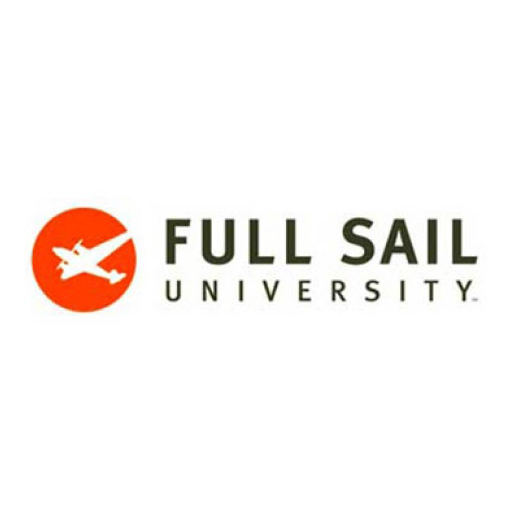

Vancouver Community College - Downtown Campus
British Columbia, Canada • 28 Programmes
Tuition Fee : CAD 16000-29000 / year
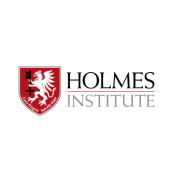
Holmes Institute - Brisbane Campus
Queensland, Australia • 6 Programmes
Tuition Fee : AUD 19500-20000 / year

Great Plains College - Swift Current Campus
Saskatchewan, Canada • 5 Programmes
Tuition Fee : CAD 17000-17500 / year
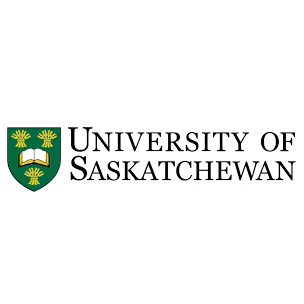
University of Saskatchewan
Saskatchewan, Canada • 83 Programmes
Tuition Fee : CAD 21000-45500 / year
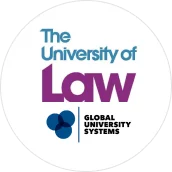
Global University Systems (GUS) - The University of Law - Birmingham Campus
England, UK • 32 Programmes
Tuition Fee : GBP 11000-17000 / year
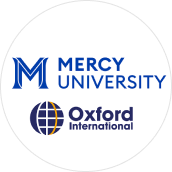
OIEG Group- Mercy University - Bronx Campus
New York, USA • 23 Programmes
Tuition Fee : USD 22000-23000 / year
-Concordia-University-Chicago.webp)
Global University Systems (GUS) - Concordia University Chicago
Illinois, USA • 37 Programmes
Tuition Fee : USD 31500-32800 / year
Popular English Language Proficiency Exams
Blogs and Articles
Curated content to keep you updated on the latest education trends, news and more.
Updated on • Jul 17,2025 05:33 PM IST • USA
PTE Accepted Universities in Australia
Updated on • Jul 17,2025 05:09 PM IST • PTE
Part-Time Jobs for International Students in Australia
Updated on • Jul 17,2025 03:44 PM IST • Australia
Updated on • Jul 12,2025 04:02 PM IST • USA
Updated on • Jul 11,2025 11:32 AM IST • Education
CPT vs OPT: Meaning, Difference, and How to Apply
Updated on • Jul 11,2025 10:40 AM IST • USA
Masters in Computer Science in UK: Top Colleges, Eligibility, Scholarships
Updated on • Jul 10,2025 11:29 AM IST • study in the UK
Highest Paying Jobs in the World
Updated on • Jul 08,2025 01:40 PM IST • Study Abroad
MBA in Australia for Indian Students: Best Universities, Requirements, Scholarship, Courses, Jobs
Updated on • Jul 08,2025 01:35 PM IST • Australia
Canada vs Australia: Which Country is Better for Indian Students in 2025?
Updated on • Jul 07,2025 12:46 PM IST • Education
France vs Germany: Which Is Better for International Students?
Updated on • Jun 30,2025 05:15 PM IST • Education
Top 10 Agricultural Universities in USA
Updated on • Jun 27,2025 05:25 PM IST • USA
Most In-Demand Future Careers in 2025
Updated on • Jun 26,2025 04:41 PM IST • Education
How Much Do Nurses Make in the U.S.?
Updated on • Jun 23,2025 03:59 PM IST • USA
Updated on • Jun 21,2025 02:00 PM IST • USA
MBA in UK: Universities, Eligibility, Types, and Career Opportunities
Updated on • Jun 19,2025 04:09 PM IST • UK • study in the UK
Scholarships in France for Indian Students
Updated on • May 29,2025 05:22 PM IST • France
Intakes in Dubai for Indian Students
Updated on • May 27,2025 03:34 PM IST • Study in Dubai
France Student Visa 2025 – Requirements, Fees, Checklist & Application Process
Updated on • May 23,2025 03:36 PM IST • France
MBA in France for Indian Students in 2025
Updated on • May 22,2025 05:35 PM IST • France
Related Blogs and Articles
A little effort to provide an authentic and reliable content for keen readers!!
Highest Paying Jobs in the World
Updated on • 08-07-2025 • Study Abroad
Countries to study MBA abroad in 2024 : Eligibility, Fees, Exams for Indian Students
Updated on • 28-04-2025 • Study Abroad
A Guide to calculating CGPA to percentage to study abroad
Updated on • 26-04-2025 • Study Abroad
ACT vs. SAT: Which One to Choose?
Updated on • 14-04-2025 • Study Abroad
Top Trending MBA Specialisations in 2025
Updated on • 08-04-2025 • Study Abroad
Best Countries to Study Abroad for Indian Students in 2025
Updated on • 08-03-2025 • Study Abroad
Things to Keep in Mind Before Studying Abroad
Updated on • 21-01-2025 • Study Abroad
How to Choose a Study Abroad Destination?
Updated on • 09-01-2025 • Study Abroad
Updated on • 07-01-2025 • Study Abroad
Top MBA Courses to Specialize in Abroad
Updated on • 25-10-2024 • Study Abroad
Part-Time Jobs for International Students Abroad
Updated on • 23-10-2024 • Study Abroad
How Can Overseas Study Experience Help You In Your Career?
Updated on • 15-07-2024 • Study Abroad
Why take Study Abroad Counselling?
Updated on • 08-07-2024 • Study Abroad
Why are Indian Students seeking Education Abroad?
Updated on • 25-06-2024 • Study Abroad
How Canam Consultants Helps in Availing Student Loan to Study Abroad
Updated on • 18-05-2024 • Study Abroad
How Students Can Maintain Mental & Physical Wellbeing While Studying Abroad
Updated on • 30-04-2024 • Study Abroad
Cost of Living in Canada for Indian Students in 2024
Updated on • 30-04-2024 • Study Abroad
How to Apply for Student Loans to Study Abroad?
Updated on • 18-03-2024 • Study Abroad
Statement of Purpose (SOP) for Internship
Updated on • 15-02-2024 • Study Abroad
Highest Paying MBA Specializations in Abroad
Updated on • 09-02-2024 • Study Abroad












